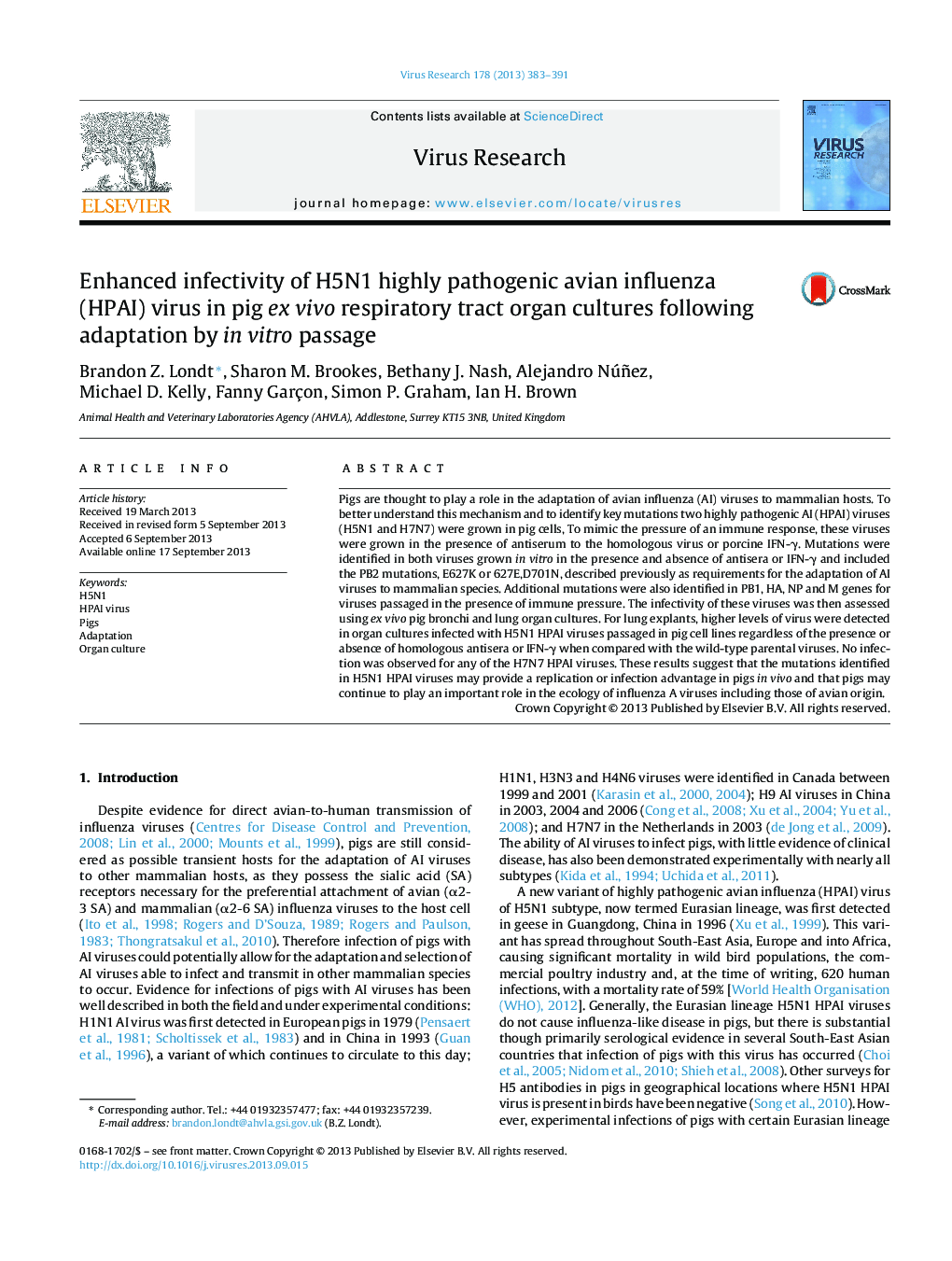| کد مقاله | کد نشریه | سال انتشار | مقاله انگلیسی | نسخه تمام متن |
|---|---|---|---|---|
| 6142698 | 1228209 | 2013 | 9 صفحه PDF | دانلود رایگان |

- Studied the mutations in HPAI viruses that may allow these viruses to establish in pig populations.
- HPAI viruses grown in pig cells with immune pressure to induce mutations.
- More mutations identified in H7N7 HPAI viruses grown in cells with immune pressure.
- Enhanced infectivity observed in H5N1 HPAI viruses in pig ex vivo pig organ cultures.
- Surveillance for these mutations could provide early warning for the control of infections in pigs.
Pigs are thought to play a role in the adaptation of avian influenza (AI) viruses to mammalian hosts. To better understand this mechanism and to identify key mutations two highly pathogenic AI (HPAI) viruses (H5N1 and H7N7) were grown in pig cells, To mimic the pressure of an immune response, these viruses were grown in the presence of antiserum to the homologous virus or porcine IFN-γ. Mutations were identified in both viruses grown in vitro in the presence and absence of antisera or IFN-γ and included the PB2 mutations, E627K or 627E,D701N, described previously as requirements for the adaptation of AI viruses to mammalian species. Additional mutations were also identified in PB1, HA, NP and M genes for viruses passaged in the presence of immune pressure. The infectivity of these viruses was then assessed using ex vivo pig bronchi and lung organ cultures. For lung explants, higher levels of virus were detected in organ cultures infected with H5N1 HPAI viruses passaged in pig cell lines regardless of the presence or absence of homologous antisera or IFN-γ when compared with the wild-type parental viruses. No infection was observed for any of the H7N7 HPAI viruses. These results suggest that the mutations identified in H5N1 HPAI viruses may provide a replication or infection advantage in pigs in vivo and that pigs may continue to play an important role in the ecology of influenza A viruses including those of avian origin.
Journal: Virus Research - Volume 178, Issue 2, 26 December 2013, Pages 383-391